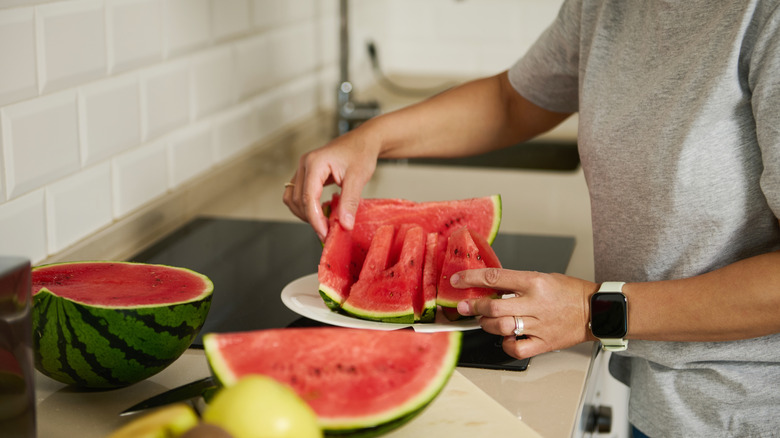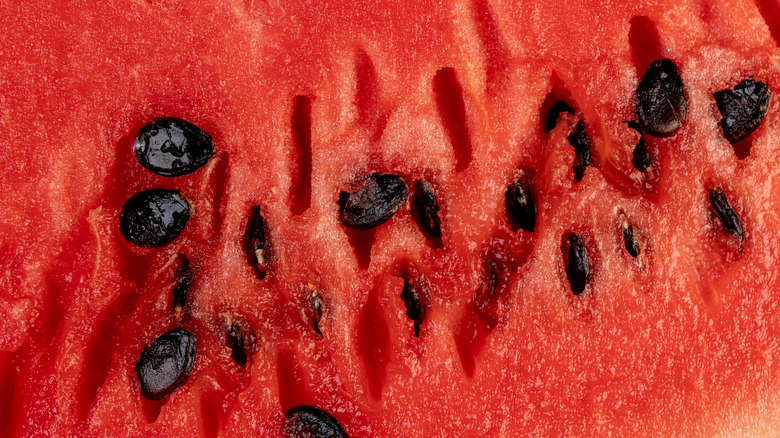How To Preserve Watermelon Seeds To Grow Them Later On
One question watermelon lovers often have is about how to grow them yourself at home. Can you simply pluck some seeds from any watermelon at a local grocery store and plant them in your backyard? The answer is a definite... maybe. When saving watermelon seeds, there are some specific steps you need to take, or else your efforts will likely fail. However, success is possible if you take the necessary precautions.
Watermelon seeds themselves need to be prepped carefully to give you the best chance at germination. Rather than just sticking them right into the ground, you'll need to clean any watermelon flesh off by soaking and rinsing. Any seeds that sink in water are good candidates for planting. Ensure they are completely dry by leaving them on a paper towel in open air for a week or two. Once they have no moisture left on them, you're ready to plant them immediately or refrigerate them for the next growing season. They can also be stored in an airtight container away from sunlight or moisture. However, even after going through this prep process carefully, there are some other things that can affect the success of your watermelon plants.
It can be tricky to plant seeds from a store-bought watermelon
A large part of getting usable seeds is picking a good watermelon when you're at the supermarket. You want a really ripe one, so there's less need to stress about how long a watermelon will last before it goes bad. But there's much more to it. Some types are sterile, meaning that you can treat those seeds absolutely perfectly, and they will still never germinate. Often, sterile watermelons only have immature white seeds, so check the label and avoid anything that says "seedless." To maximize your chances of getting something that has the ability to grow, pick out an heirloom variety that looks large and healthy. Keep in mind that, especially with the hybrid varieties that are most common in grocery stores, you probably won't get the same type of watermelon that you harvested the seeds from. More likely, you'll end up with a melon with a combination of characteristics from the parent and ancestor plants, meaning that most grocery store melon seeds are a gamble at best.
Another part of getting a good result is planting at the right time of year. If it's too chilly, with soil temperatures below 70 degrees, watermelons simply won't grow. You can start the seeds indoors if you're worried that winter is running long. Look into when watermelon season is in your area, and start the seeds indoors about a month before you plant to plant them outside. They'll need plenty of space on all sides to allow the vines to grow comfortably. You'll also need to give them lots of water, especially during the hottest summer days. If your seeds are well-prepared, the conditions are right, and the watermelon gods are on your side, you'll end up with juicy watermelons in 70 to 110 days.

